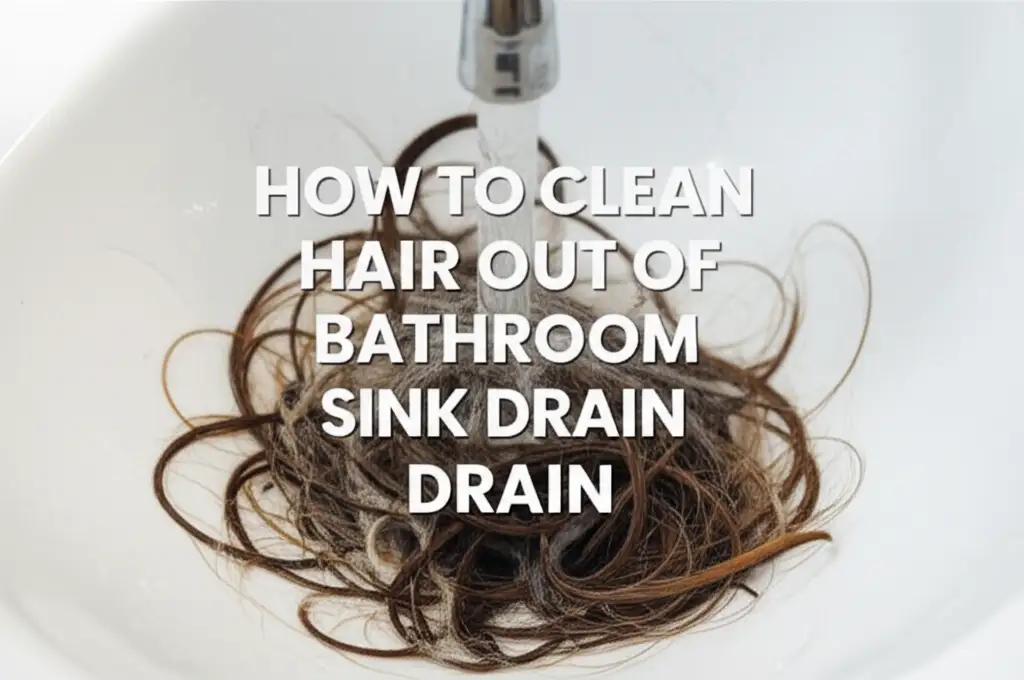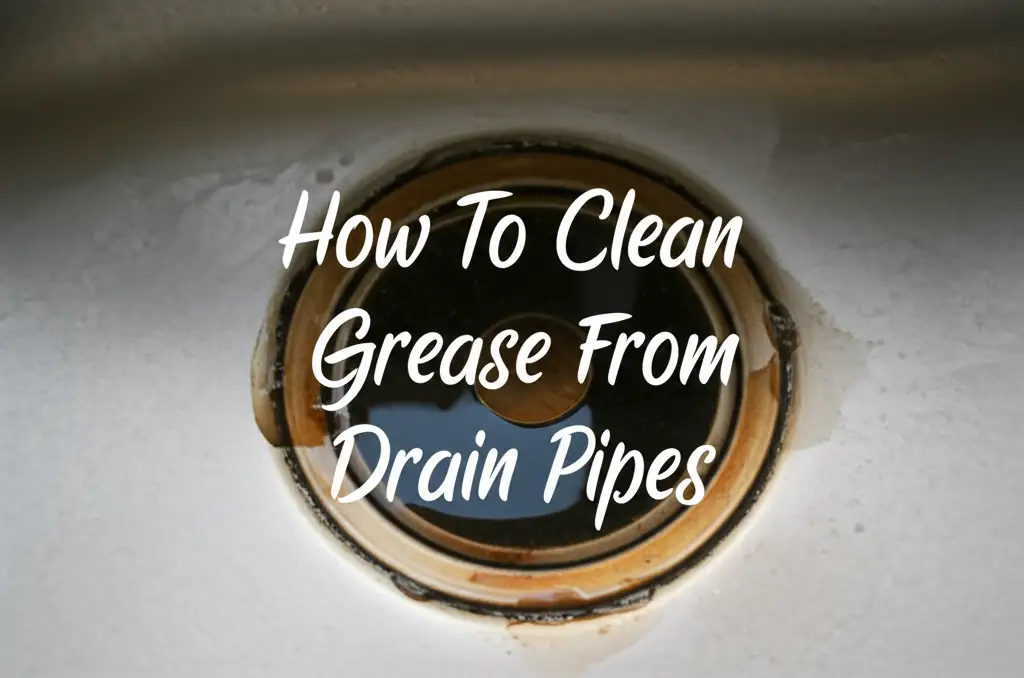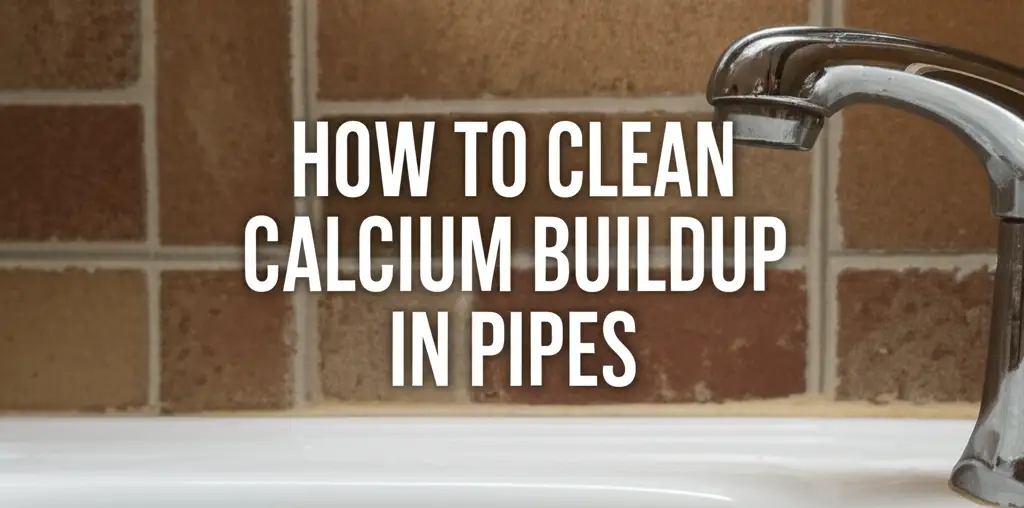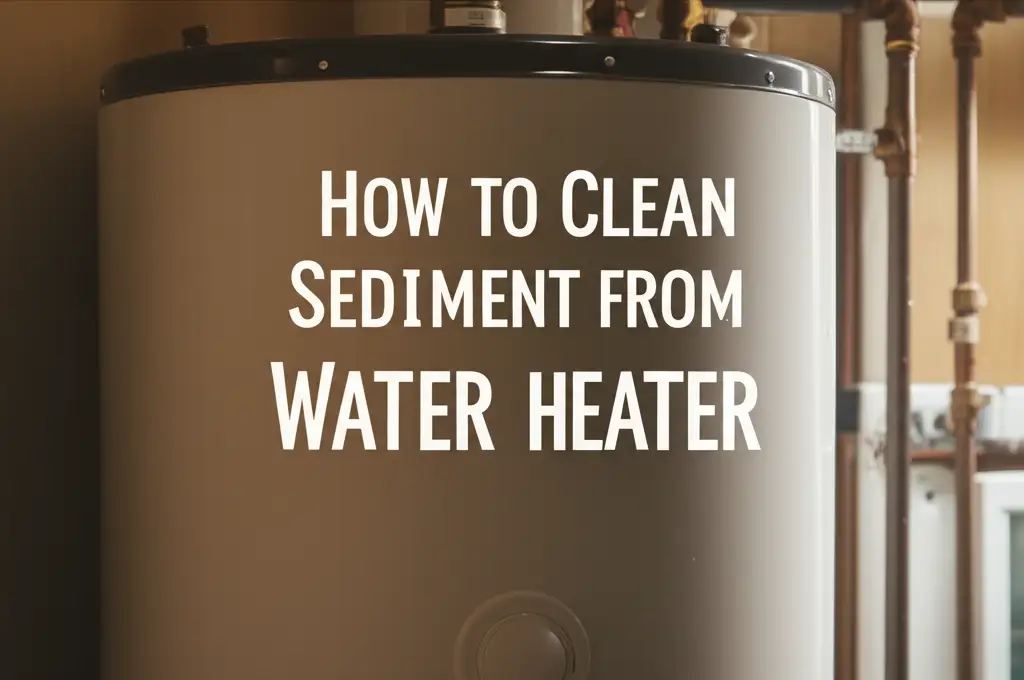· Home Maintenance · 12 min read
How To Clean Cast Iron Pipes
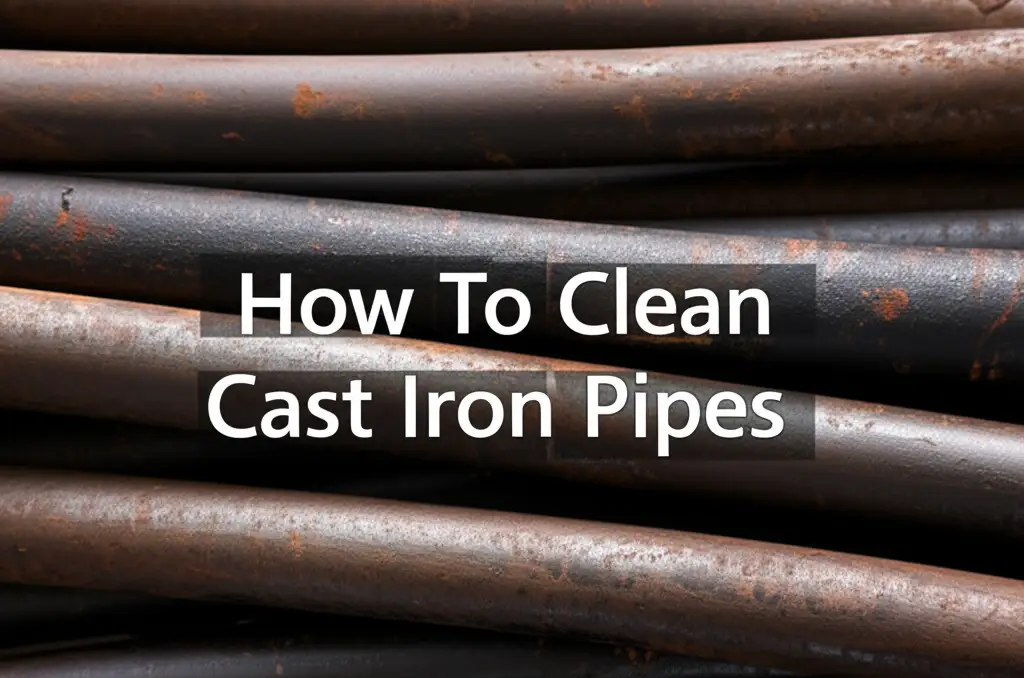
Clean Cast Iron Pipes: Your Guide to Clear Drains
Slow drains or standing water can disrupt your home life. Often, cast iron pipes are the cause of these issues. These durable pipes, common in older homes, can accumulate grease, scale, and debris over time. Understanding how to clean cast iron pipes is essential for maintaining a healthy plumbing system. This guide will walk you through various cleaning methods, safety precautions, and prevention strategies. We aim to help you tackle pipe blockages with confidence. You will find practical steps for a smoother flow in your plumbing.
Takeaway
- Identify clog symptoms early, such as slow draining or gurgling sounds.
- Prioritize safety by wearing gloves and eye protection when working with drains.
- Use mechanical tools like drain snakes for tough clogs in cast iron pipes.
- Apply natural solutions like baking soda and vinegar for minor blockages.
- Implement regular maintenance habits to prevent future clogs and extend pipe life.
- Know when to contact a professional plumber for severe or recurring drain issues.
To clean cast iron pipes, you can use mechanical methods like snaking or hydro-jetting, or chemical/natural solutions such as baking soda and vinegar for minor clogs. Always identify the clog type first and prioritize safety before starting any cleaning process to ensure effectiveness and prevent damage.
Understanding Your Cast Iron Pipes and Common Issues
Cast iron pipes are strong and last a long time. Many older homes have these pipes for drainage and sewer lines. Over years of use, they can develop problems. These problems often lead to slow drains or complete blockages. Understanding these issues helps you decide on the best cleaning method.
Common problems in cast iron pipes include blockages from grease, hair, and food debris. Mineral buildup, like calcium, can also narrow the pipe’s diameter. Tree roots sometimes grow into small cracks, causing severe clogs. Rust and corrosion inside the pipes can make surfaces rough. This rough surface catches debris easily. When water drains slowly, or you hear gurgling sounds, your pipes likely need attention. Ignoring these signs can lead to bigger plumbing problems. Knowing when to act saves you trouble later.
Before you attempt to clean cast iron pipes, look for clear signs. A drain that takes a long time to empty is a primary indicator. Bad smells coming from drains also suggest buildup. If multiple drains in your home are slow, the problem is likely in a main line. Identifying these symptoms early helps prevent a full pipe blockage. Addressing issues quickly protects your plumbing system.
Safety First: Essential Preparations for Pipe Cleaning
Working on your plumbing system requires careful planning. Safety must be your top priority. Preparing properly prevents accidents and ensures a successful cleaning job. You deal with dirty water and possibly harsh chemicals. Personal protective equipment protects your skin and eyes. This step is not optional.
Gather all necessary safety gear before you start. Always wear heavy-duty rubber gloves. These gloves protect your hands from grime, bacteria, and cleaning solutions. Eye protection, like safety goggles, shields your eyes from splashes. If you use chemical cleaners, ensure the area is well-ventilated. Open windows and use fans to move air. This prevents inhaling harmful fumes. Keep children and pets away from the work area. Their safety is as important as yours.
Before any cleaning begins, inspect the area around the pipe. Clear any items that might get in the way. Place old towels or rags around the drain. This catches spills and prevents floor damage. If you suspect a major blockage, turn off the water supply to that area. This prevents overflows if the clog does not clear immediately. Have a bucket ready for any water or debris that comes out. Understanding the type of clog helps too. For example, clearing grease from drain pipes may require different tools than calcium buildup in pipes. Knowing what you are dealing with saves time and effort.
Mechanical Cleaning Methods for Cast Iron Pipes
Mechanical cleaning methods are effective for tough clogs. These methods physically remove blockages from your cast iron pipes. They do not rely on chemicals. This makes them a safer choice for older pipes. Knowing how to use these tools properly is key.
A drain snake, also called a plumbing auger, is a common tool for clearing clogs. This long, flexible metal coil has a corkscrew tip. You feed the snake into the drain until it reaches the clog. Then, you crank a handle to push and twist the snake. The tip breaks up the clog or hooks onto it. You then pull the clog out. Be careful not to force the snake, as it can damage old pipes. For kitchen drains, hair and grease are common culprits. A drain snake can effectively remove a hair clog. It can also break apart soft grease blockages.
For very stubborn or deep clogs, hydro-jetting is a powerful solution. This method uses high-pressure water streams to blast away buildup inside pipes. Hydro-jetting can clear grease, scale, roots, and other debris. It cleans the entire pipe diameter, not just the clog. This method usually requires professional equipment and expertise. A plumber will insert a specialized nozzle into the pipe. The nozzle then releases high-pressure water, scouring the pipe walls clean. While effective, hydro-jetting should be used with caution on very old or corroded cast iron pipes. The high pressure could cause damage if the pipes are too weak. Consult a professional plumber before attempting this method yourself. They can assess your pipes’ condition and determine if hydro-jetting is safe.
Chemical and Natural Solutions for Pipe Cleaning
Sometimes, mechanical methods are not feasible or necessary. Chemical and natural solutions offer alternatives. These methods dissolve or break down clogs. They are suitable for less severe blockages. Always choose the right solution for the specific clog.
For minor clogs, natural solutions are a safe and eco-friendly option. A mixture of baking soda and vinegar is a popular choice. This combination creates a fizzy reaction that can help break down grease and grime. First, pour one cup of baking soda down the drain. Follow it with one cup of white vinegar. The fizzing action works to loosen the clog. Let the mixture sit for at least 30 minutes, or even overnight. After waiting, flush the drain with hot water. This method works well for kitchen drains plagued by grease buildup in pipes and for bathroom drains with soap scum. This natural remedy is gentle on your cast iron pipes.
Enzymatic cleaners are another type of natural solution. These products contain bacteria and enzymes that digest organic matter. They break down food particles, grease, hair, and soap scum. Enzymatic cleaners work slowly but are safe for pipes and septic systems. You usually pour them down the drain and leave them overnight. They do not contain harsh chemicals. This makes them a good choice for regular maintenance to prevent clogs. They are not effective for severe, solid blockages. Use them as a preventative measure.
Chemical drain cleaners offer a quick fix for some clogs. These products often contain strong acids or alkalis. They work by dissolving organic matter. However, they come with significant risks. Chemical cleaners can generate heat. This heat can damage old cast iron pipes, especially if the pipes are already weak. They can also create toxic fumes. If the chemical does not clear the clog, it sits in the pipe. This makes it dangerous for a plumber to work on later. Always read the product label carefully. Follow all safety warnings. Use them as a last resort for minor clogs. Consider consulting a plumber before using harsh chemicals. They might suggest other, safer ways to handle calcium buildup in pipes or other hard blockages.
Preventing Future Cast Iron Pipe Clogs
Cleaning your cast iron pipes is a good start. Preventing future clogs is even better. Good habits extend the life of your plumbing system. They save you time and money on repairs. Small changes in daily routines make a big difference.
Practice good habits in your kitchen and bathroom. Never pour grease down the drain. Grease solidifies in pipes and causes major blockages. Collect grease in a container and dispose of it in the trash. Use strainers in all drains to catch food scraps, hair, and soap scum. Empty these strainers regularly. Avoid flushing anything other than toilet paper down the toilet. Even “flushable” wipes can cause significant problems. These simple steps stop many common clogs before they start.
Regular maintenance helps keep your cast iron pipes clear. Flush your drains with hot water periodically. This helps move small bits of debris through the system. You can also pour a mixture of baking soda and vinegar down the drain once a month. This gentle routine helps prevent buildup. Using enzymatic drain cleaners regularly also keeps pipes free of organic matter. Schedule professional drain cleaning every few years. A plumber can inspect your pipes. They can identify potential problems before they become major clogs. Proactive maintenance saves you from emergency plumbing situations. It ensures your cast iron pipes remain functional for many years.
When to Call a Professional Plumber
Sometimes, a clog is too stubborn for DIY methods. Other times, the problem may be beyond a simple blockage. Knowing when to call a professional plumber saves you from frustration. It also prevents further damage to your cast iron pipes. Professionals have the tools and expertise for complex issues.
Several signs indicate you need professional help. If you try DIY methods and the clog persists, it is time to call a plumber. Recurring clogs in the same drain suggest a deeper problem. This could be a break in the pipe or extensive root intrusion. Slow drains in multiple fixtures could mean an issue with your main sewer line. This is a serious problem that needs expert attention. If you notice sewage backing up into your sinks or toilets, call a plumber immediately. This indicates a severe blockage in the main line. Unpleasant odors that do not go away after cleaning also signal a need for professional inspection.
Professional plumbers offer specialized services. They use advanced diagnostic tools like drain cameras. These cameras allow them to see inside your pipes. They can pinpoint the exact location and nature of the clog or damage. Plumbers have powerful equipment like commercial-grade drain snakes and hydro-jetters. They can safely clear blockages that home tools cannot. They can also perform necessary repairs, such as root removal or pipe section replacement. Hiring a professional plumber ensures the job gets done right. It protects your cast iron pipes from potential damage. They provide long-term solutions, not just temporary fixes. For serious clogs or widespread drainage issues, professional help is the safest and most effective choice.
FAQ Section
Is it safe to use chemical drain cleaner on cast iron pipes?
Using chemical drain cleaners on cast iron pipes can be risky. These products contain harsh chemicals that generate heat. This heat can weaken or corrode old cast iron pipes over time. If the cleaner does not clear the clog, it can sit in the pipe, making professional repair hazardous. Natural or mechanical methods are generally safer alternatives.
How often should I clean my cast iron pipes?
The frequency of cleaning depends on usage and pipe condition. For preventative maintenance, consider flushing drains with hot water weekly. Use natural cleaners like baking soda and vinegar monthly. A professional drain cleaning every 2-3 years can prevent major blockages. If you notice slow drains, address the issue promptly.
Can I clean cast iron pipes myself, or do I need a plumber?
You can clean minor clogs yourself using a drain snake or natural remedies. These methods are effective for common blockages like hair or minor grease buildup. For severe clogs, recurring issues, or suspected pipe damage, it is best to call a professional plumber. They have specialized tools and expertise to handle complex problems safely.
What causes cast iron pipes to clog?
Cast iron pipes commonly clog due to grease, food particles, and hair accumulation. Soap scum and mineral deposits like calcium also build up over time, narrowing the pipe diameter. Tree roots can penetrate cracks in older pipes, causing significant blockages. Rust and corrosion inside the pipes create rough surfaces that trap debris.
What is the best way to maintain old cast iron pipes?
To maintain old cast iron pipes, avoid pouring grease or food scraps down drains. Use drain strainers to catch hair and debris. Flush pipes with hot water regularly. Consider monthly treatments with baking soda and vinegar or enzymatic cleaners. Schedule periodic professional inspections and cleanings to detect and address issues early.
Are there any signs that indicate my cast iron pipes are failing?
Signs of failing cast iron pipes include frequent clogs, sewage odors, or slow drains in multiple fixtures. Discolored water, rust flakes in the water, or gurgling sounds from drains can also indicate deterioration. Water stains on ceilings or walls might suggest pipe leaks. These signs warrant immediate professional assessment.
Conclusion
Cleaning and maintaining your cast iron pipes is essential for a healthy home. You have learned various methods to tackle common clogs. From using a simple drain snake to understanding when to call a professional, you are now better equipped. Prioritizing safety during any cleaning task is always important. Remember, small preventative steps can prevent major problems down the line.
By implementing good habits and routine maintenance, you extend the life of your plumbing system. You can keep your cast iron pipes flowing smoothly for years to come. Do not let slow drains frustrate you. Take action today to ensure your plumbing stays clear and functional. Embrace these tips and enjoy a clog-free home.
- cast iron pipe cleaning
- drain cleaning
- pipe maintenance
- clogged pipes
- plumbing tips

